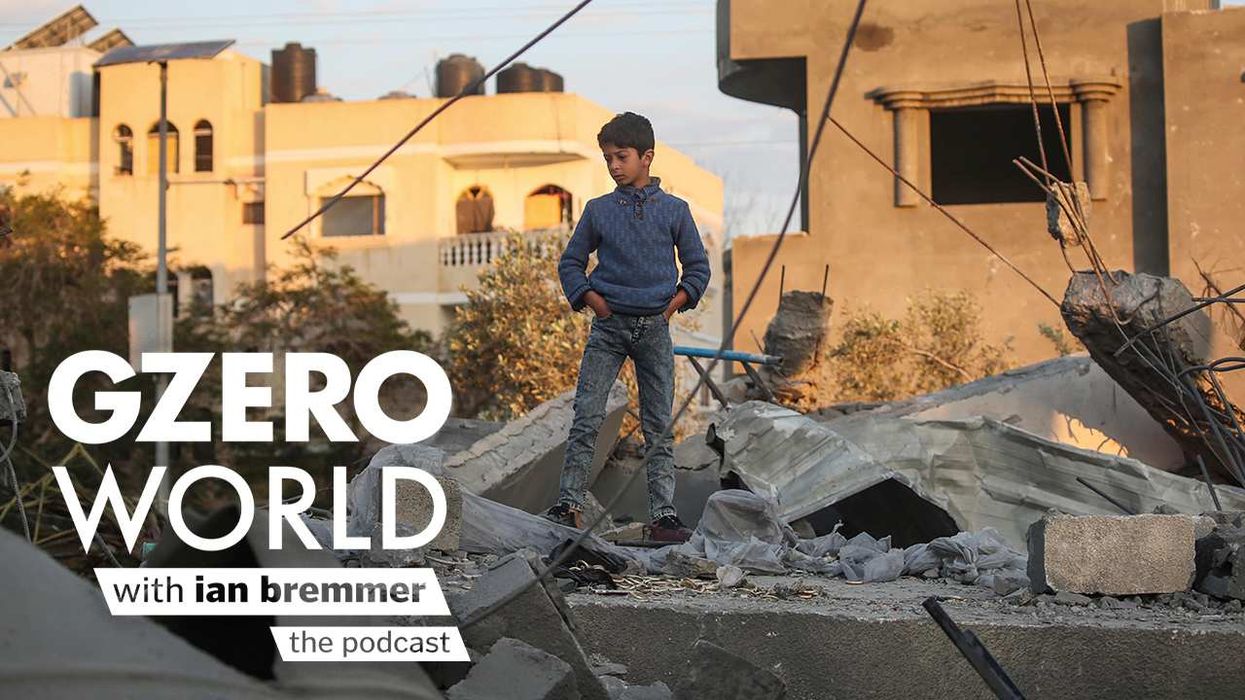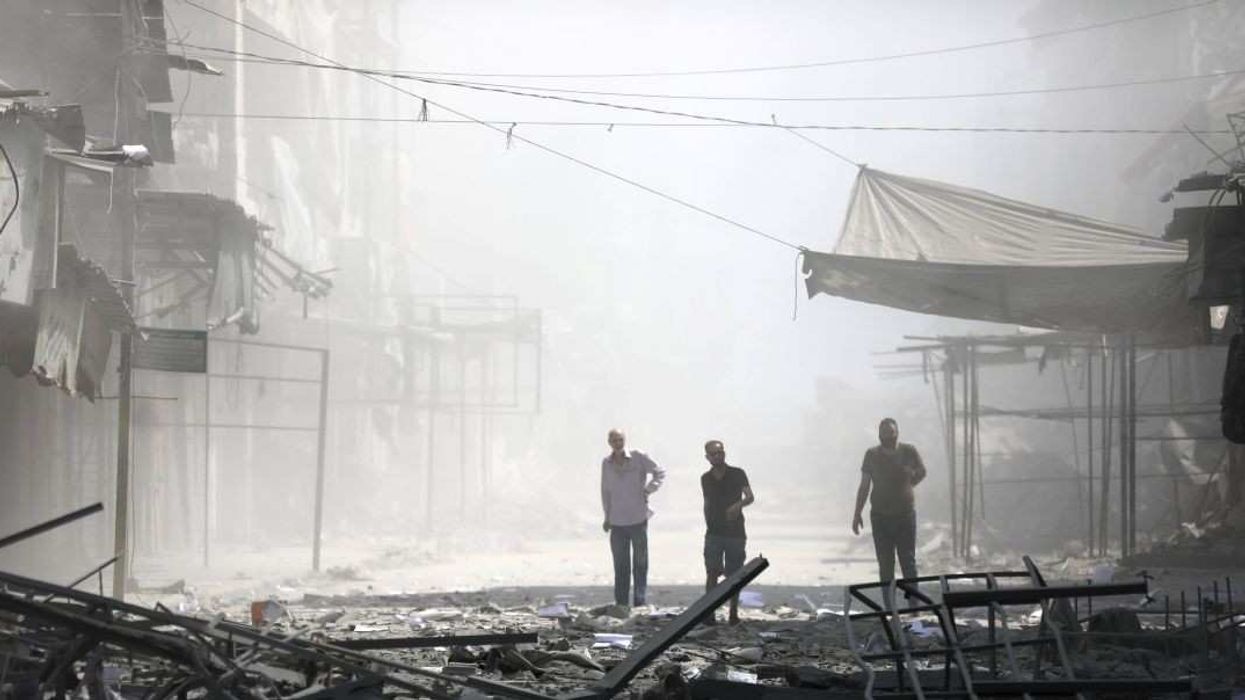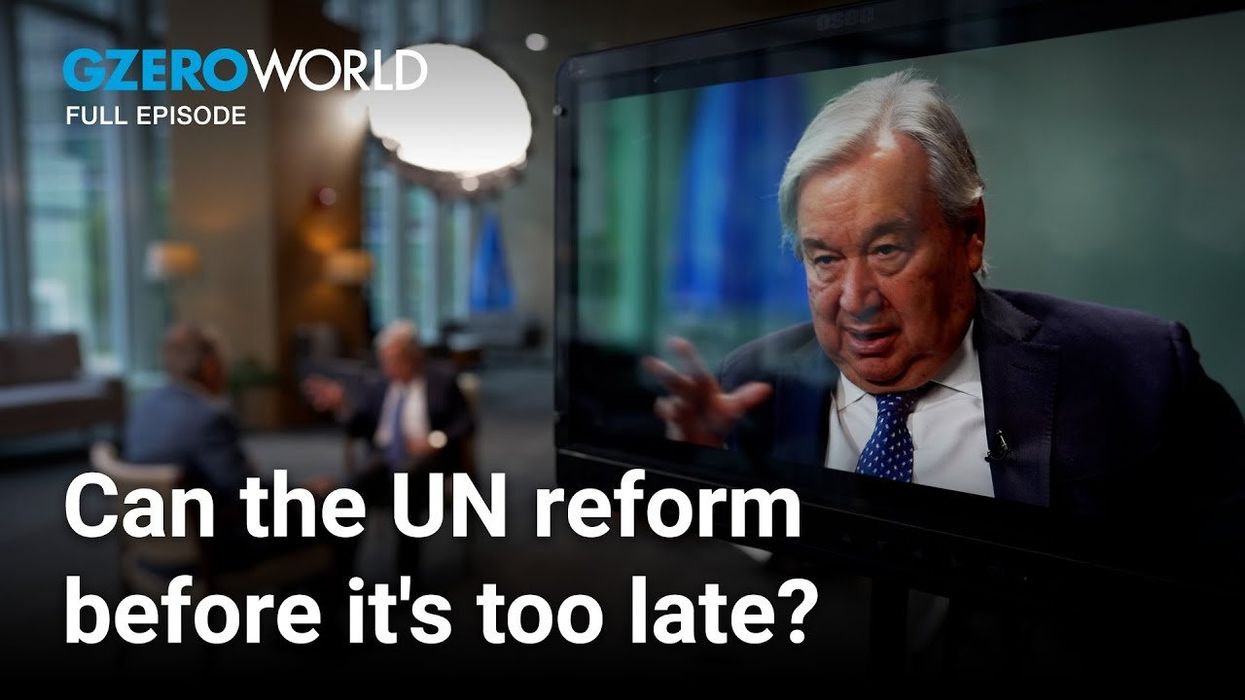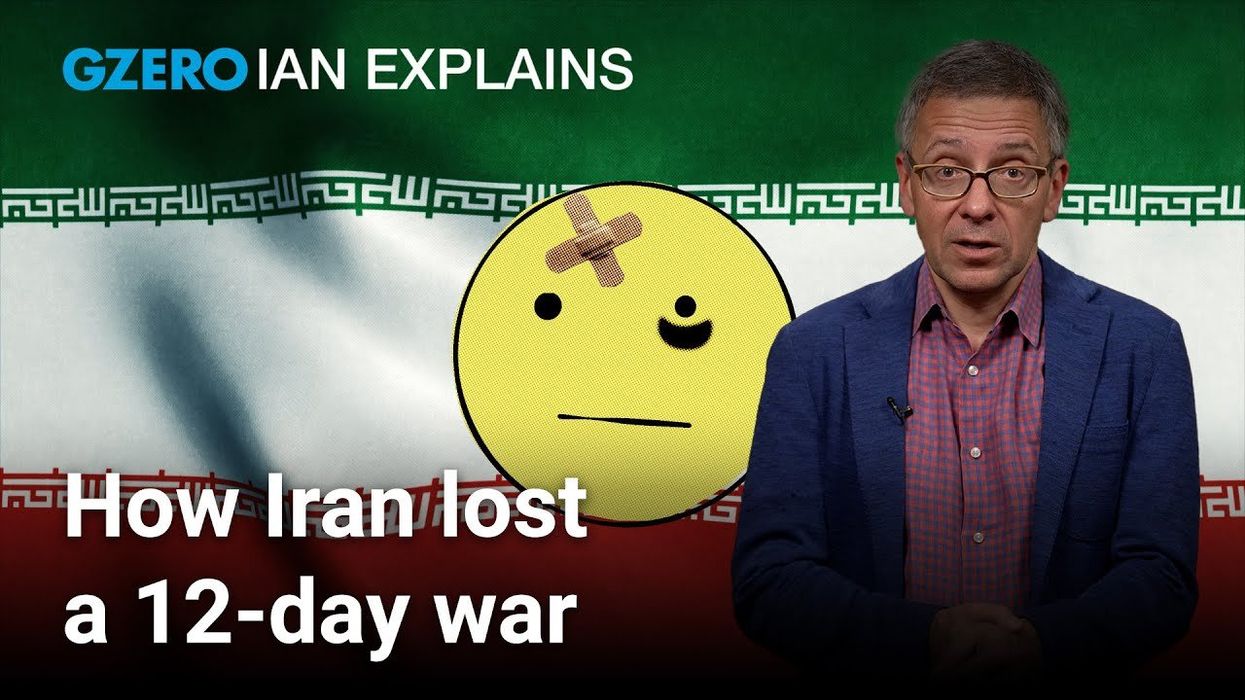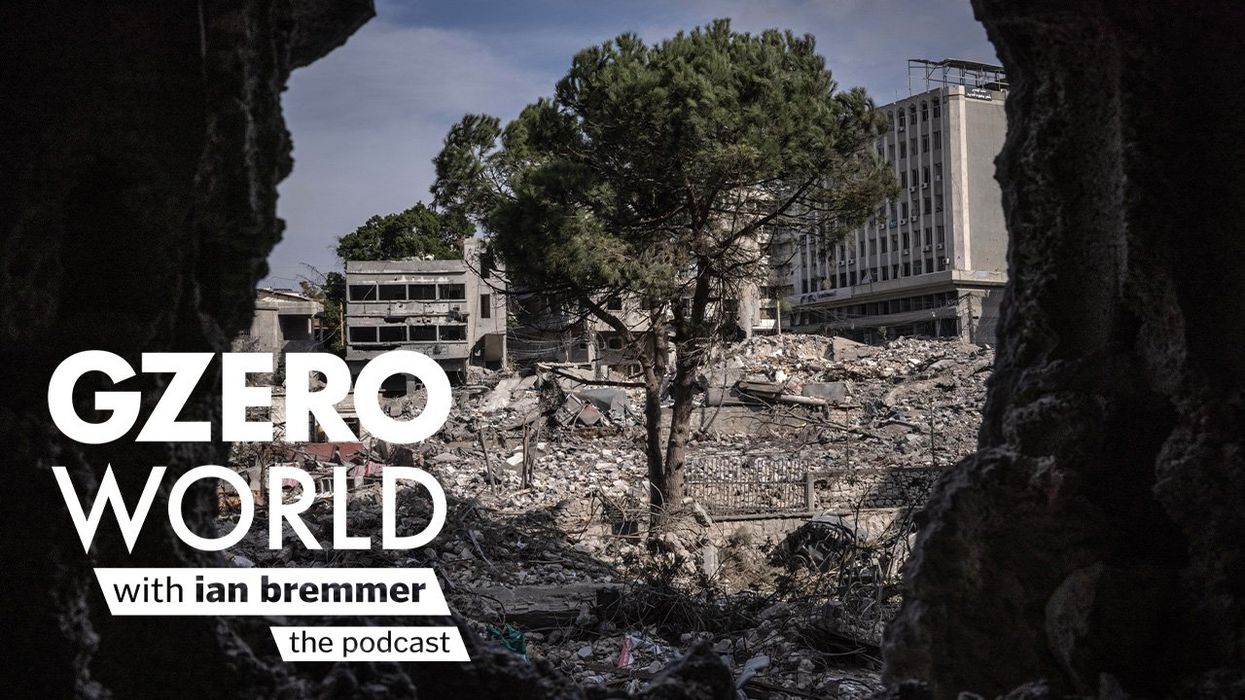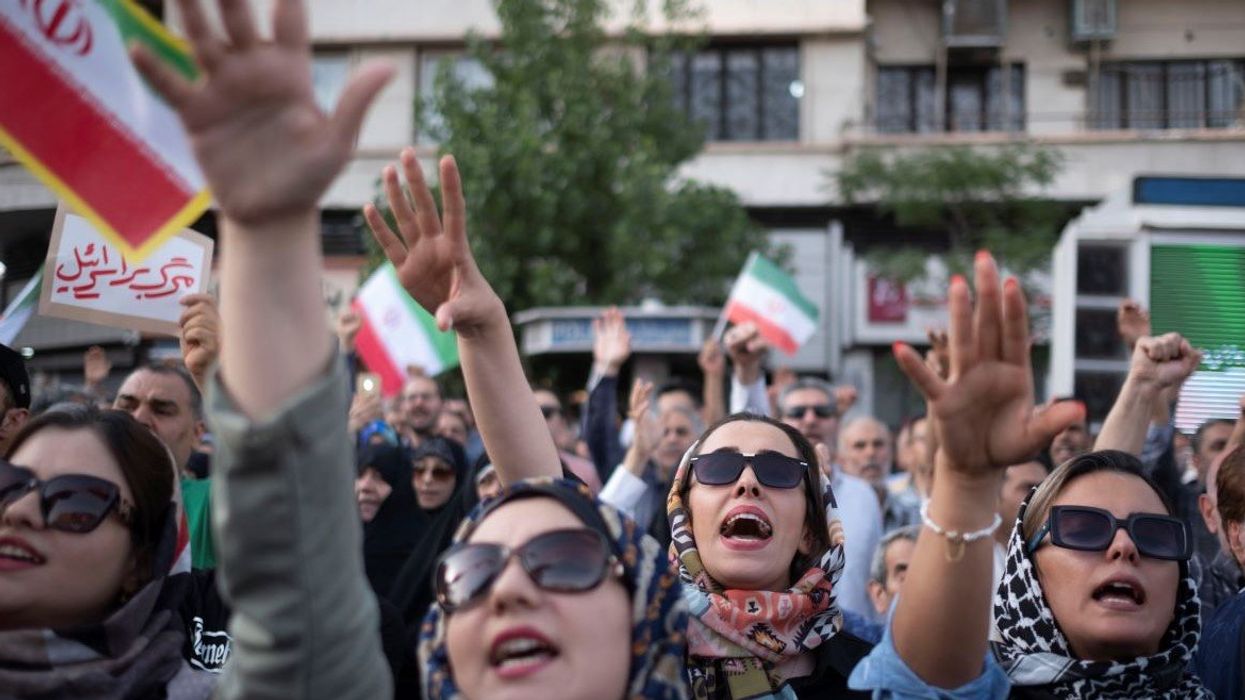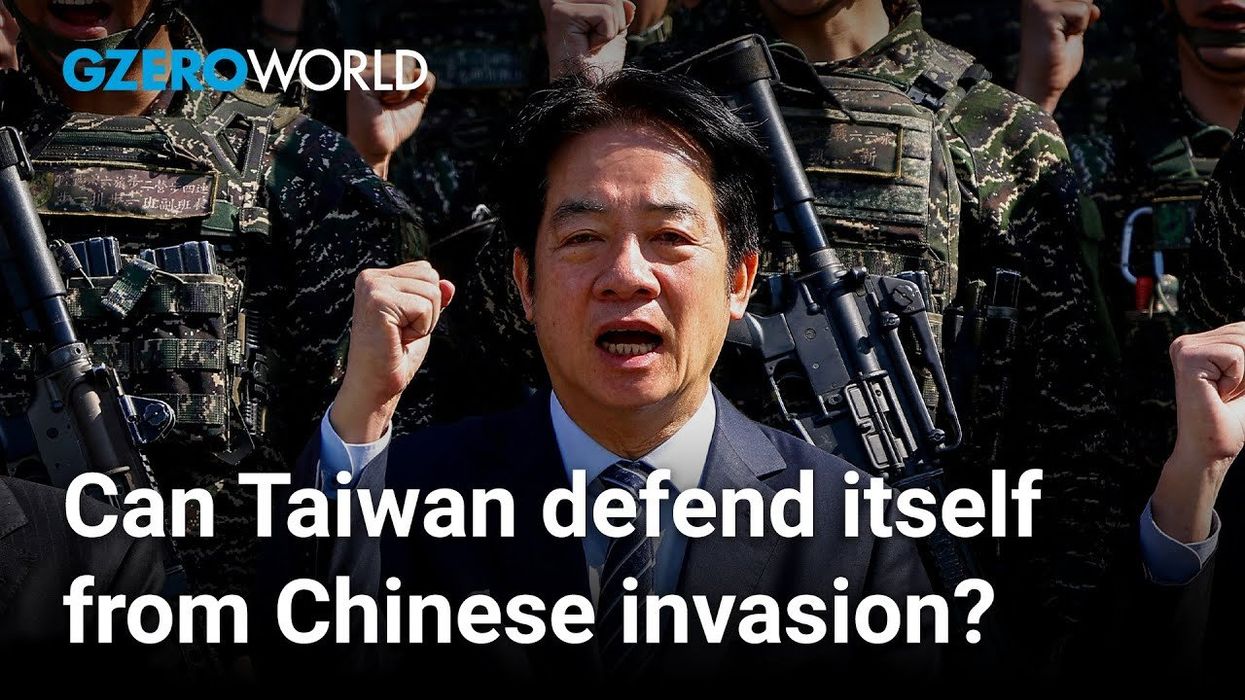GZERO World with Ian Bremmer
The state of global conflict in 2025
On GZERO World, Ian Bremmer takes a hard look at the biggest global crises and conflicts that defined our world in 2025 with CNN’s Clarissa Ward and International Crisis Group’s Comfort Ero.
Dec 22, 2025

